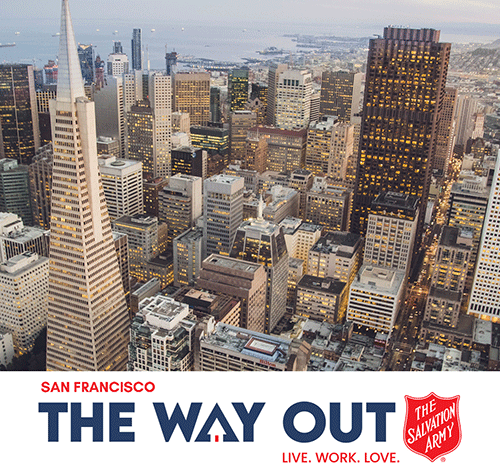Salvation Army's 'The Way Out' Initiative Proposes 220-Bed Recovery Center Amid San Francisco's Addiction Crisis

San Francisco, CA – The Salvation Army San Francisco's "The Way Out" initiative is actively expanding its efforts to address the city's severe homelessness and drug addiction crisis, highlighted by its street outreach teams and ambitious plans for new recovery facilities. The program emphasizes "treatment on demand" for individuals ready to pursue sobriety, offering a direct pathway out of addiction and homelessness. This comprehensive approach aims to provide immediate support and long-term recovery solutions, contrasting with some of the city's previous strategies.
San Francisco recorded a devastating 752 fatal overdoses in 2023, marking a record high and underscoring the urgent need for effective interventions. "The Way Out" initiative directly challenges the city's traditional "Housing First" and "Harm Reduction" policies, which critics argue have inadvertently exacerbated the crisis by not prioritizing abstinence and long-term recovery. The Salvation Army's program focuses on a structured "Recovery System of Care" designed to foster lasting change.
The initiative's multi-faceted approach includes the Harbor Light Recovery Wellness Center for immediate stabilization and detox, residential treatment programs, and the Joseph McFee Center for up to two years of recovery-focused transitional housing. Steve Adami, Executive Director of The Way Out and a recovering addict himself, champions this model, stating, "When they're ready, we have treatment on demand waiting for them. This is The Way Out!" as shared in a recent tweet. The program also offers vocational training through its Culinary Training Academy and robust alumni support.
A significant expansion includes a proposed 8-story, 220-bed drug rehabilitation center at 850 Harrison Street in the SoMa neighborhood, intended for individuals who have completed initial treatment. Additionally, a 68-bed transitional housing facility is planned for the Marina District, operated in partnership with the city's Department of Public Health. These facilities are crucial to the program's goal of providing a continuous, supportive environment for individuals committed to recovery.
"The Way Out" has garnered significant support from the private sector, including a $1 million seed investment from Salesforce CEO Marc Benioff and backing from Y Combinator CEO Garry Tan. This financial and community support underscores a growing consensus that a recovery-oriented approach is vital for addressing San Francisco's humanitarian crisis. The initiative seeks to empower individuals to achieve self-sufficiency and reintegrate into the community, offering a stark alternative to the cycle of addiction.